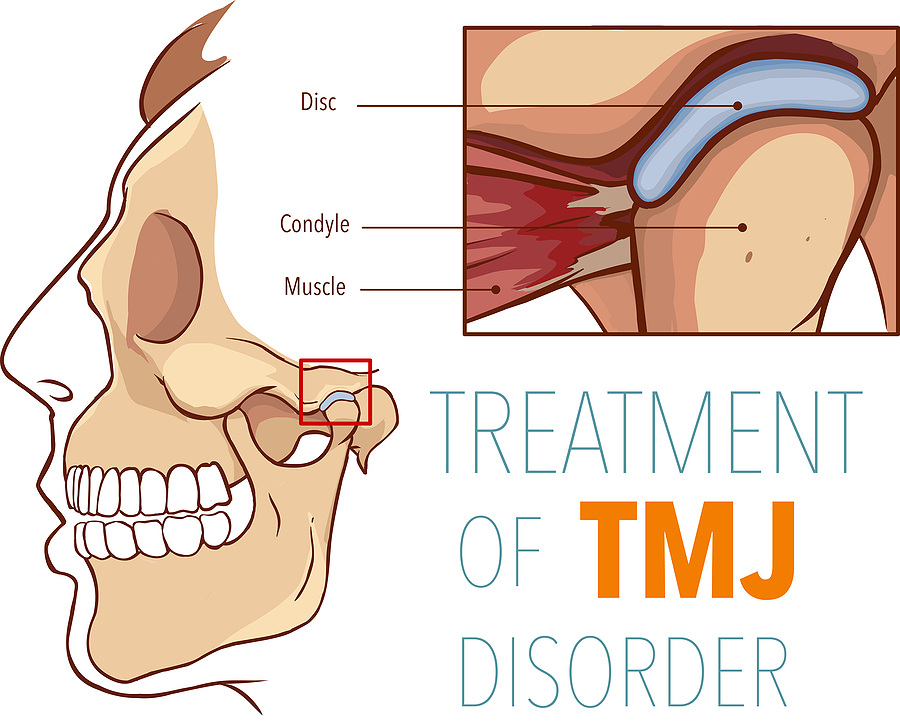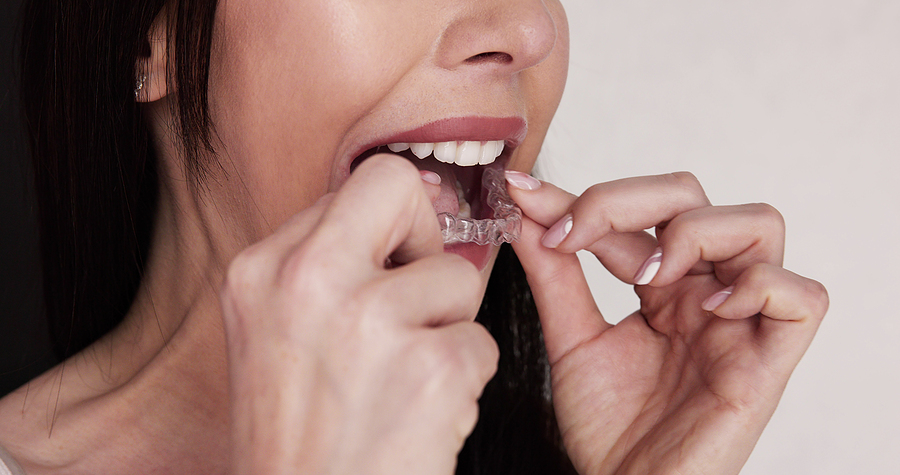Understanding TMJ-TMD: Causes, Symptoms, and Treatment Options in Brooklyn and New York, NY
Posted by Ingrid Barillas Jun 03, 2024

Temporomandibular joint disorder (TMD), often referred to as TMJ, affects millions of people worldwide. This condition can cause pain, discomfort, and Difficulty in jaw movement, impacting daily activities like eating and speaking. If you're experiencing jaw pain, clicking sounds, or limited mouth movement, seeking professional help for TMJ-TMD in Brooklyn and New York, NY, is essential. A skilled dentist can diagnose and treat TMJ disorders, helping you regain comfort and jaw function.
This guide explores TMJ disorders, their symptoms, causes, and the most effective treatment options.
What Is TMJ-TMD?
The temporomandibular joint (TMJ) connects the jawbone to the skull and allows smooth jaw movement. Temporomandibular disorders (TMD) refer to conditions that cause pain and dysfunction in this joint and surrounding muscles.
While TMJ refers to the joint itself, TMD encompasses all disorders affecting it. Many people mistakenly use "TMJ" to describe the condition, but the correct medical term is TMD.
Symptoms of TMJ-TMD
TMD symptoms can range from mild discomfort to severe pain that interferes with daily life. Common signs of TMJ-TMD include:
✅ Jaw Pain and Tenderness – Discomfort in the jaw, face, neck, and shoulders.
✅ Clicking or Popping Sounds – Noises when opening or closing the mouth.
✅ Difficulty Chewing – Pain or discomfort while eating.
✅ Locking of the Jaw – Inability to fully open or close the mouth.
✅ Ear Pain or Ringing (Tinnitus) – TMJ disorders can cause ear-related symptoms.
✅ Headaches and Migraines – Chronic headaches due to jaw tension.
✅ Facial Swelling – Inflammation near the TMJ area.
If you experience these symptoms, contact us immediately, and we will help you determine the best course of action.
Causes of TMJ-TMD
Several factors can contribute to the development of TMJ-TMD in Brooklyn and New York, NY:
Teeth Grinding (Bruxism)
Grinding or clenching teeth (often unconsciously) puts excessive pressure on the TMJ, leading to pain and inflammation.
Jaw Injury or Trauma
Accidents, sports injuries, or a direct blow to the jaw can damage the TMJ, leading to TMD symptoms.
Arthritis
Osteoarthritis and rheumatoid arthritis can affect the TMJ, causing pain and restricted movement.
Misaligned Bite (Malocclusion)
When teeth do not align properly, it can strain the jaw joint and lead to TMD symptoms.
Stress and Muscle Tension
Emotional stress can cause unconscious clenching, worsening TMJ problems.
Connective Tissue Disorders
Certain conditions affecting connective tissues may lead to joint instability and TMD.
Understanding the underlying cause of TMD is crucial in determining the most effective treatment.
Diagnosis of TMJ-TMD
A dentist in Brooklyn and New York, NY, will conduct a comprehensive examination to diagnose TMJ disorders. This may include:
🔹 Physical Examination – Assessing jaw movement, tenderness, and clicking sounds.
🔹 X-rays or CT Scans – Providing detailed images of the jaw joint.
🔹 MRI Scans – Detecting issues with the soft tissues and cartilage.
🔹 Bite Analysis – Evaluating how teeth align and affect the jaw joint.
Accurate diagnosis is essential for developing a personalized treatment plan.
Treatment Options for TMJ-TMD
Effective treatments for TMJ-TMD in Brooklyn and New York, NY, range from conservative methods to advanced procedures.
Lifestyle and Home Remedies
Mild cases of TMD can improve with simple at-home strategies:
✔ Apply Ice or Heat Packs – Ice reduces inflammation, while heat relaxes muscles.
✔ Practice Jaw Exercises – Strengthening and stretching exercises can improve function.
✔ Avoid Hard or Chewy Foods – Soft foods reduce strain on the jaw.
✔ Reduce Stress – Meditation and relaxation techniques can minimize clenching.
✔ Maintain Good Posture – Proper head and neck alignment reduces jaw pressure.
Medications
A dentist may prescribe:
✔ Pain Relievers – Over-the-counter NSAIDs (like ibuprofen) reduce pain and inflammation.
✔ Muscle Relaxants – Help ease jaw tension and spasms.
✔ Anti-Anxiety Medications – Manage stress-related clenching and grinding.
Dental Treatments
If an improper bite contributes to TMD, dental solutions may include:
✔ Custom Mouthguards (Night Guards) – Protect teeth from grinding and reduce jaw tension.
✔ Orthodontic Treatments – Braces or Invisalign correct bite misalignment.
✔ Dental Crowns or Bridges – Restores proper bite balance.
Physical Therapy
Professional therapy can include:
✔ Jaw Exercises – Strengthening and stretching techniques to improve movement.
✔ Ultrasound Therapy – Reduces joint inflammation.
✔ Massage Therapy – Relaxes jaw muscles and relieves tension.
Advanced Treatments (For Severe Cases)
If conservative methods fail, a dentist may recommend:
✔ Injections (Botox or Corticosteroids) – Reduce muscle spasms and inflammation.
✔ Arthrocentesis – A minimally invasive procedure to remove fluid buildup in the joint.
✔ TMJ Surgery – Rarely needed but may be necessary for severe joint damage.
Preventing TMJ-TMD
To prevent TMJ disorders from worsening:
✔ Wear a Night Guard – Protects against teeth grinding.
✔ Avoid Chewing Gum – Reduces strain on the jaw.
✔ Practice Good Posture – Helps maintain jaw alignment.
✔ Manage Stress – Reduce clenching by practicing relaxation techniques.
Conclusion
TMJ-TMD can be a painful and disruptive condition, but with proper care, relief is possible. Whether you need a night guard, physical therapy, or advanced treatment, a dentist in Brooklyn and New York, NY, can help restore jaw function and eliminate discomfort.
Don't let jaw pain affect your quality of life—schedule an appointment today and take the first step toward a pain-free smile!
To schedule an appointment with us today, visit Dental Specialists of New York P.C., located at 150 East 58th Street, New York, NY 10155, 110 York Street, Brooklyn, NY 11201, or 476 48th Street, 3rd Floor, Brooklyn, NY 11220. For bookings and consultations, call (212) 661-2192. Please visit our official website to learn more about our various services.
More Blog Posts
LOCATIONS
- MON - FRI9:00 am - 5:30 pm
- SAT - SUNClosed
- MON - FRI9:00 am - 5:30 pm
- SAT - SUNClosed
476 48th Street 3rd Floor, Brooklyn, NY 11220
Phone: (212) 661-2192
Email: info@dentalspecialistsofny.com
- MON - FRI9:00 am - 5:30 pm
- SAT - SUNClosed





